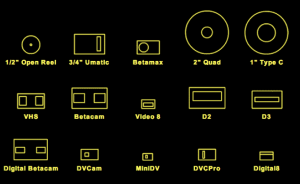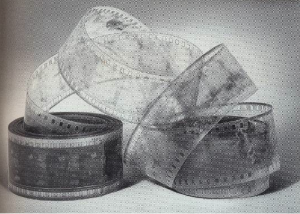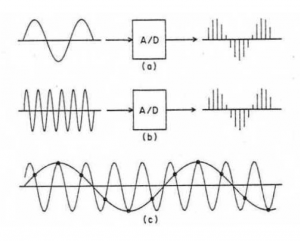Audiovisual Preservation Lecture on March 26th
Magnetic Humanity: Preserving the 20th Century’s Analog Tape
March 26th, 6:30 pm, BIll Brand Screening Room, Jerome Liebling Center, Hampshire College
Free and open to the public
Hampshire College is proud to host a lecture by Walter Forsberg about the state of the art with respect to the preservation of time-based audiovisual media. Audiovisual media face obsolescence as well as inherent vices that cause these information carriers to rapidly deteriorate and become unplayable. At the same time, the ability to stream audiovisual materials over the Internet, combined with the decreasing cost of performing high-quality digitization of legacy analog materials both time-based (video, motion picture film and recorded sound) and photographic (slides, negatives and various kinds of prints) has allowed more and more archives, museums and libraries to make their moving image and recorded sound materials instantly available to the public. Because each of the Five Colleges has distinct strengths in film, photography and video, we hope this lecture will help invigorate the discussions – and explicate the importance – of audiovisual preservation in the Pioneer Valley.
The wealth of incompatible formats is one challenge in audiovisual preservation.
About the lecture:
“Celluloid” and film have long reigned supreme in the public consciousness as the format associated with moving images. Yet, in the contemporary shift towards digital and web-based paradigms, the images, sounds, and histories once recorded on more recent analog magnetic tape formats are proving the most at-risk when it comes to format obsolescence, degradation, and the inability to make the technological jump. What happens when movie-makers, archivists, historians, and society are forced to acknowledge the impending and unavoidable loss of cultural memory? How can organizations and individuals prioritize what is saved, and what will be lost? How does digitization of select materials serve to write (and erase) history?
Instabilities intrinsic to the design of audiovisual carriers – like the breakdown syndrome inherent in nitrate-based film – is another preservation challenge.
Through a discussion of projects like the New Museum of Contemporary Art’s 2013 open-door public archiving exhibition XFR STN, New York-based media conservator and filmmaker Walter Forsberg will speak on the impending death of analog magnetic media, obsolescence hype, and media preservation. Walter will also highlight the important role artists and creatives can play in efforts to save and promote aging media content, through examples of his past projects with digital artist Cory Arcangel, computer animator Lillian Schwartz, and the 1980s New York art collective COLAB.
Digitization of analog-recorded signals is critical to ensuring their long-term accessibility.
About the speaker:
Walter Forsberg is a time-based media conservator and artist. His past media preservation projects include collaborations with artist Cory Arcangel (The Arcangel Underground Dance Music Collection of Recorded Sound) and Bell Labs scientist Béla Julesz. From 2010-2013 Walter held a post-graduate research fellowship in moving image preservation at NYU Libraries where he managed the Mellon Foundation project Video At Risk. In 2013 he served as Audio-Visual Conservator for the New Museum of Contemporary Art’s open-door media preservation exhibition XFR STN.
A contributing editor at INCITE Journal of Experimental Media, Walter edited and designed the recent monograph, Starvation Years: Album de l’Atelier national du Manitoba 2005-2008–a history of the Winnipeg art collective that was published in 2014. His films and videos have screened at Sundance, TIFF, the Academy of Motion Picture Arts and Sciences, and the Rotterdam film festival. walterforsberg.com
Special thanks to Five College Digital Humanities Program for their support of this lecture, which has been generously funded by The Andrew W. Mellon Foundation.



